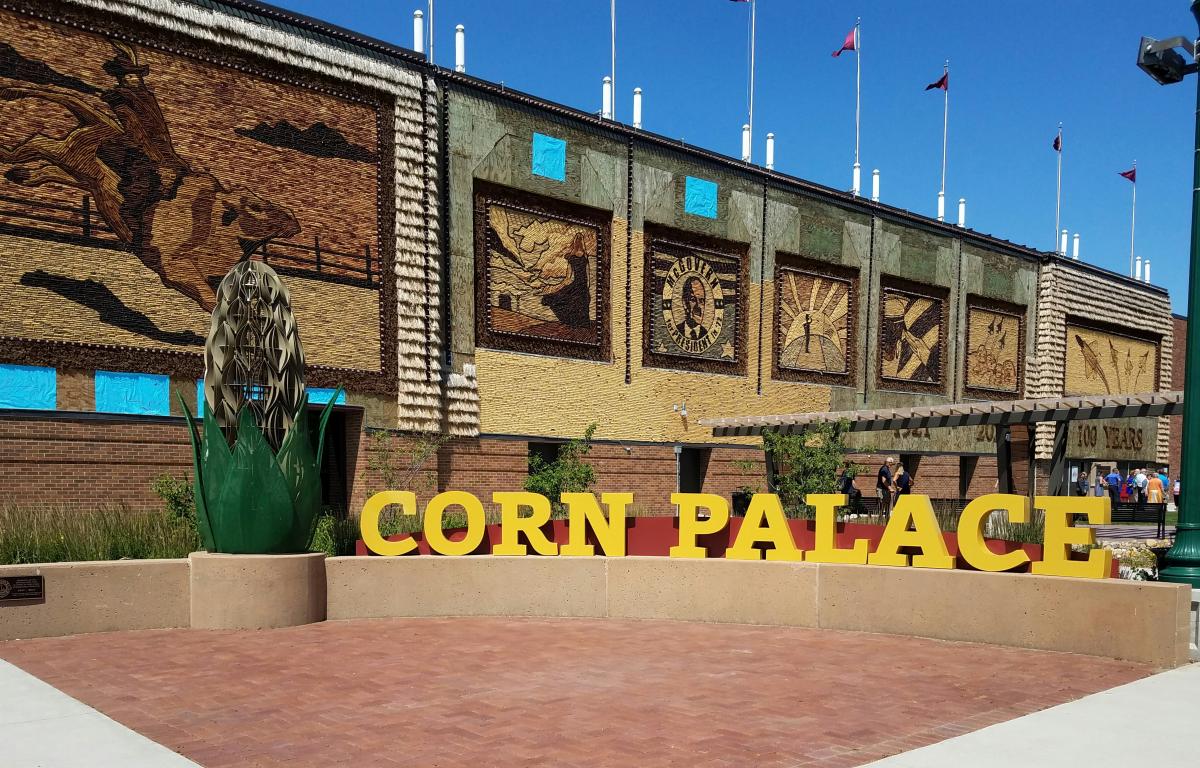Crazy Days in Mitchell just wrapped up recently. It reminded me of the distant past when Crazy Days used to really be something. Main Street was blocked off from 1st to 7th Street with merchants set up in the middle of the street. There were also ancillary contests – pie eating competitions, costume contests, judging of window and other displays etc. – as a part of the Crazy Days’ festivities. Naturally there were deep discounts on goods of odd sizes or outrageous styles or colors that shop owners couldn’t sell or send back to the manufacturer but there were also fantastic deals on quality merchandise as a matter of routine with prices that qualified as truly “crazy”. Also, unlike today, nearly every store in town participated in coordinated Crazy Day deals and promotions.
It’s not that way anymore. Crazy Days is a much more muted, slimmed down and limited event these days. Crazy Days used to be an experience that was much anticipated, like Rodeo or Corn Palace Week, but no more. It is part of the sad trend of civic events dying out either due to a lack of leadership by organizers or apathetic participation by the public. It’s a shame.
Brick and mortar retail in general and Main Street in particular face a number of challenges. At one time it was catalogue sales that were in competition with businesses with a fixed physical location and then it was the rise of the shopping malls that challenged Main Street; today it is Internet commerce. That’s why things like Crazy Days are an important part of an overall strategy of strengthening the public’s connection with local businesses and an integral ingredient in any broader “Shop Local” campaign.
I’ve often thought that no building permits should be issued for new retail space until all of the vacant buildings and current locations have been filled. There has been scuttlebutt, lately gone quiet, about building a new strip mall along the bypass. That’s madness, a waste of investors’ money, retail space and of real estate.
There are some empty buildings around town that may see new tenants occupy them. The old Campbell Supply building is now going to be a marijuana dispensary of some kind and there was talk of something similar going into the empty Shopko location. I realize that trends and times change but I’m not sure these are constructive developments for Mitchell. On the other hand, there has been positive progress around the Corn Palace with the renovation and change of business in the old Doll Museum, the sale of the Casey’s lot at the corner of 7th and Main as well as the announcement of the Corn Palace Plaza expansion into the Scoreboard location with the Scoreboard moving next door into the old Northwestern Public Service building once the Mitchell Daily Republic finds new office space.
One use for empty storefronts could be to duplicate a successful entrepreneurial program that LaCrosse, Wisconsin uses. There they have a “pop up business program” where new businesses are given a retail space to use for 90-120 days rent-free to try out their enterprise without the fixed costs of a permanent location. The City of Mitchell could partner with the Chamber of Commerce and Main Street & Beyond to make such a space (or spaces) available. Part of the requirements in the LaCrosse approach include; the new business must actively advertise their products, maintain regular hours of operation, keep the building and the grounds clean as well as have goods or services on site to sell to the public. The concept is to introduce the business and the entrepreneur to the community and after the trial period to move to a permanent location – hopefully, one of the preexisting empty retail spaces in town.
Local business, in order to survive, has to have an inviting retail space with courteous, knowledgeable and friendly employees as well as convenient to the customer hours of operation. An on-line presence is vital of course but brick and mortar stores must also make themselves known to the local trade area and not just on Facebook. Social media is crucial these days but, in order to grow, entrepreneurs need to do more than just talk to themselves and the friends they already have online. The products in the store must be unique, or more conveniently local in terms of service, price and/or community connections in order to thrive in this Internet age.
Local merchants are very important in so many ways. They provide employment, a tax base, a hedge against crime (empty buildings attract mischief makers and worse) and community support (think of all the fundraisers and other events we ask local businesses to support). Local businesses and small business owners are the bedrock of our community. It’s vital we support them. Life without them would be very bleak indeed. It is an essential partnership between the local merchant and the buying public. Of course the merchant has a responsibility to provide quality goods at fair prices with customer service and hours of operation convenient for the consumer. However, we the consumers of goods and services have an obligation, which is in our own self-interest, to patronize and support our local businesses.


